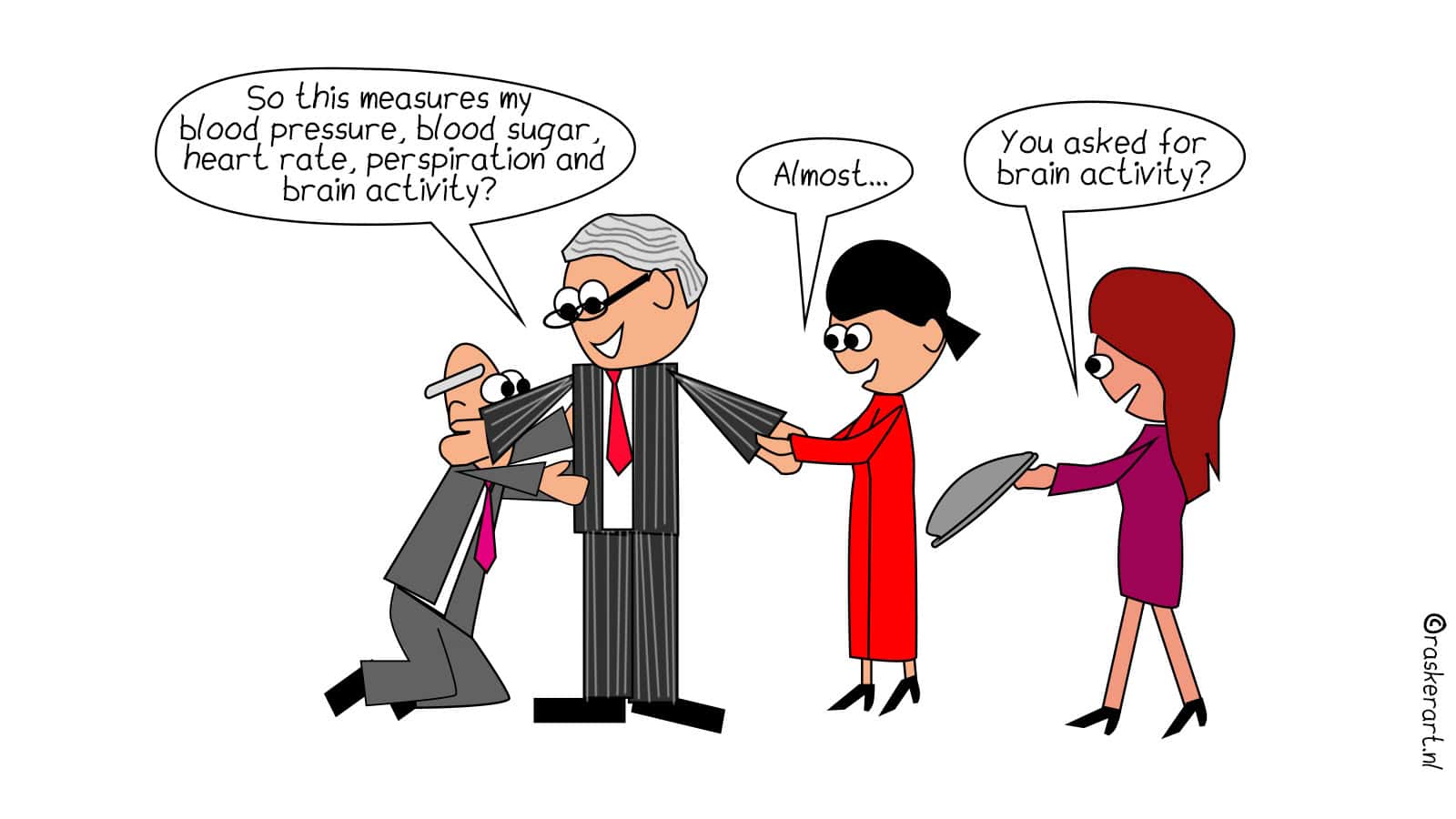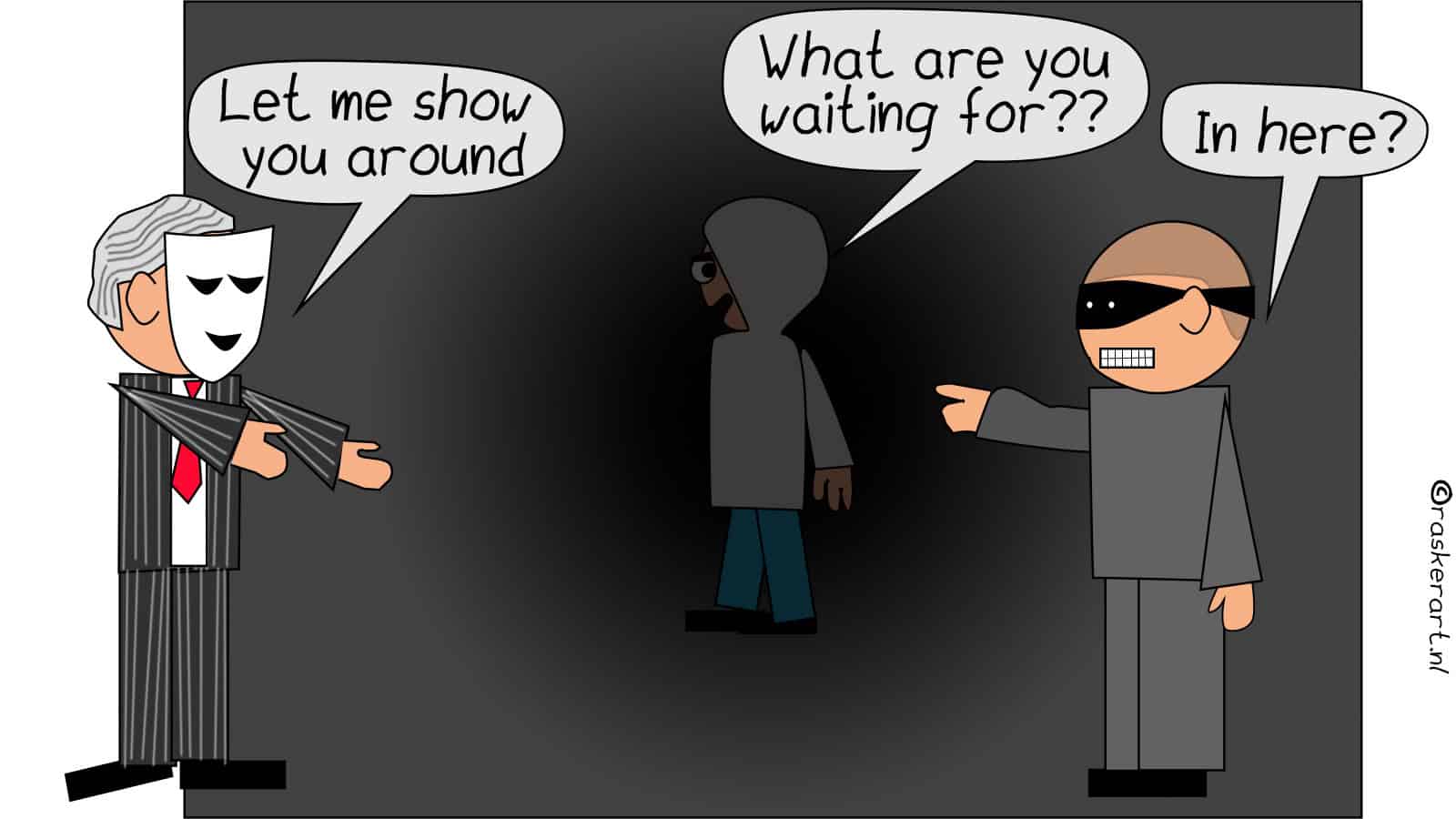
“First of all, it’s all about facts, of course,” Auke holds his head a little closer to the screen. “Telling a story is not the same as turning the facts to your advantage or – even worse – inventing something.” According to him, it matters how you use those facts. Too often scientists still ‘tip’ a box full of information ‘over the wall’, without thinking about what they’re actually trying to convey. “Everyone is drawing from the same box of cards. But the order in which you place them determines which story you tell”.
“It’s like a scenario for a movie. Why is it important that we solve this problem? How are we going to do that and what problems do we have to overcome to accomplish that? This is how scientists can include their readers in their story that people will remember more readily or that will inspire them.”
But when it comes to climate change, Auke sees too many gloomy stories ‘that no one gets any energy from‘. “They’re horror stories that have a crippling effect.” Another scenario or story that Auke often sees pass by is comparable to a quest. “It is the most obvious scenario: Climate change is threatening our way of life. But we have a solution: Solar panels and windmills. This assumes that the system we live in is good and that we are able to deal with external threats – CO2 emissions, climate change, you name it – with solar panels and windmills. A typical technofix.”
The problem lies deeper
Except, Auke argues, the problem lies much deeper. He found out for himself some 13 years ago when he asked himself what was really important right at that moment. “At that time, in my mind, I was only concerned with making money. I did nothing to make the world a better place. In order to find out what I wanted to spend my energy on from then on, I went on a sabbatical.”
Auke subsequently decided to dedicate himself to sustainable electricity and transport. He wrote a book about this and spent about 10 hours a day on it for nine months. “But when I let a good friend read it, he found it difficult to get through. Naturally, that was a terrible thing to hear.”
Determined to improve his book, Auke read all kinds of books about scenarios and storytelling. “These tips got me thinking. After all, I was actually telling a story. All I had to do was rearrange the cards I had in my hands and bring my readers into the story.”
Happy with more and more stuff?
Auke figured out that industrialization has gone overboard. “Machines have brought a lot of progress, more and more people have a roof over their heads and can see a doctor. But we keep on wanting more and more. There are people who see consumerism almost as a religion. They declare market forces sacred in the same way that believers believe in God. As though you’ve only succeeded in life when you have as much stuff as you possibly can,” Auke shows a cartoon of Garfield from 1978 on screen: ‘The one who ends up with the most toys wins.’ And then in a high-pitched voice: “Well then, I’m sure that you must feel really happy now.”
Ever since then, Auke speaks about the problems of climate change or CO2 emissions in a different way. “The rebirth scenario in which we realize that consumerism and fossil fuels are trapping us into a negative spiral. In this scenario, we are able to find out what really makes us happy thanks to science and clean technology. You also put your hand on your own heart and look beyond merely a technofix for problems. Why should we all drive an SUV? Why do we throw stuff away and can’t we aim for circular production?”
Science is more than just good research
So, simply churning out knowledge from scientific research makes no sense. Auke also tries to make that clear to his students. “The other day there was a student with some sound research on electric trucks, only his presentation was kind of boring.” Together they sat down to see what story the student wanted to tell. “You get a personal story by finding out what problem he wanted to solve and why”.
“He comes from Chennai, a city known for its beautiful beaches. But the locals don’t get to enjoy them because of the air pollution there. People he loves are getting sick and living shorter lives. Through his research, he has shown that electric trucks can help tackle this air pollution. He is able to dream of a clean and healthy city. The same facts, but a completely different story.”
In Auke’s view, scientists should not only be able to produce good research, but they should also be able to translate their profession to a wider audience. “On the one hand, scientists publish for their peers, peers who are seeking more in-depth research. But here it is also imperative to include interested peers in this journey. I also think it’s vital that scientists share their work with a wider audience. By using scenarios or stories, people are more inclined to follow the research and remember something much better. I also think that translation is an invaluable task for science.”








